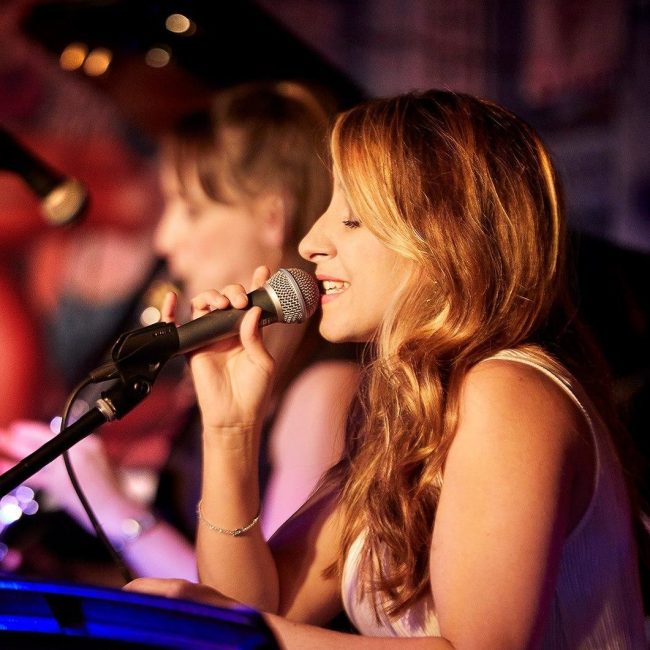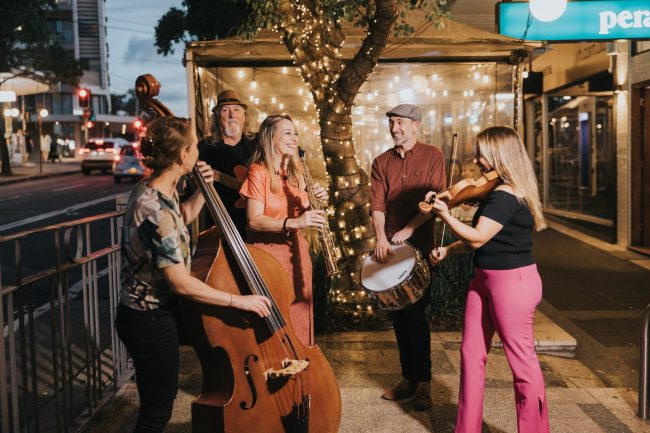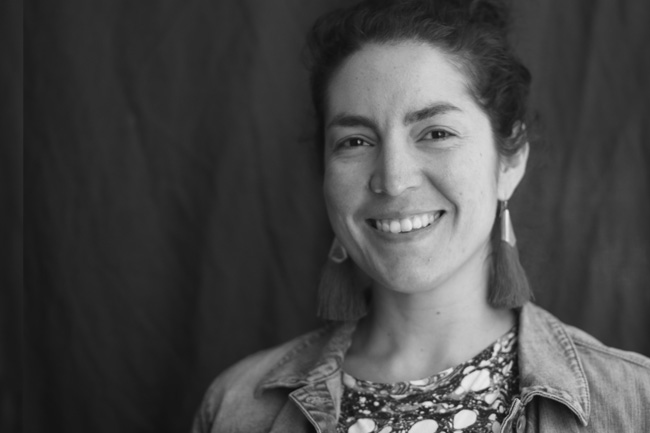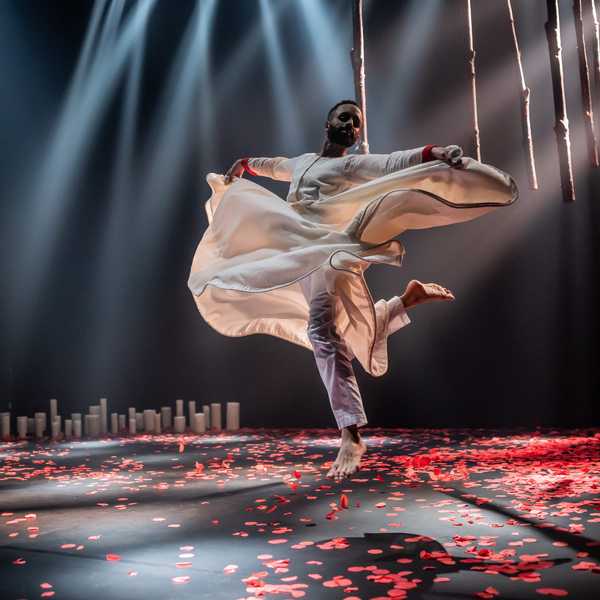Motherhood & Music – Not just the Lullaby
Approx. 13 minutes to read
Motherhood & Music – Not just the Lullaby is an interview series that unveils all the beauty, complexity, challenge, wonder and joy interwoven into the experience of musicians who are mothers. I chose this title, because often times when we think of mothers and music, we only think of lullabies- conjuring the idyllic image of a mother with babe in arms cooing gently with a comforting smile. Gorgeous!
By titling “Not just the Lullaby”, I in no way intend to dismiss the importance of this fundamental act of connection. In fact, I wish more parents would sing to their children for so many reasons as shared in this fascinating ABC article, “The songs we sing to babies and why we sing them”.
In this interview, singer, violinist and song writer, Mandie Vieira, tells me about her connection to her heritage, how she is helping parents sing to their children in her Lullaby Project, and why she is hesitant for her children to pursue a full-time career in music.

Sonia de Freitas: Hi Mandie, how are you and where does our interview find you today?
Mandie Vieira: I am currently at my day job as a teacher, writing the answers to this interview in a hurry as I am late to submit it. I feel like I am constantly chasing my tail, but I think as a mother this is a common thread! Will I have time to proof read this? Very unlikely- so please excuse the bad grammar.
SdF: Can you tell me a little more about your life as a mother and musician?
MV: I don’t remember ever being anything else but a musician. I started learning the violin at the age of three after my parents watched a documentary on the ABC about the Suzuki method. My parents were immigrants who came from musical families and my parents wanted me to learn and study an instrument, an opportunity they never had in Madeira, Portugal. From learning the violin, I developed a love for music and more specifically Portuguese traditional music. We lived in the Sutherland Shire, which meant travelling for music lessons was a weekly affair, which meant lots of listening time in the car. My parents would put on our Suzuki cassettes and traditional Portuguese music called “Fado”. I memorised many pieces and was able to play them all with no sheet music. I always loved singing from an early age as my mum always sang to us and in our family home while doing mundane house work. My parents recognised that I had the potential to be a vocalist and so I commenced singing lessons at the age of thirteen. From an early age I was the supporting act for many famous artists that came from Portugal and from the age of seventeen I was part of the world music program for Musica Viva. I am the mummy of two beautiful children, Olivia (10) and William (8). They are both learning an instrument, Olivia plays the violin and William the cello. I have only realised now how much time and effort my parents put into the musician I am today. My mum’s constant daily nurturing to get her four children to practice is truly remarkable considering they owned two restaurants at the time. I am lucky, to now have a wonderful partner as my husband who helps me with the daily struggles of being a working parent. My husband is not a musician but is very supportive of my career. He also helps with encouraging our children with their music commitments as he sees the value and the positive impacts it has on our children lives.

SdF: What, if anything, may have changed for you in relation to the way you thought about music and your ambitions as a musician once you became a mother?
MV: The week I found out I was pregnant I was thinking of travelling to Portugal to record an album. The opportunity arose after performing for the Portuguese president here in Australia. I really believe that this crossroads shaped my life and who I am today. As soon as I found out I was pregnant my baby came first, I was so excited to be a mother. I had very severe morning sickness and the impact and social dilemmas of becoming a mother came much earlier for me. I wasn’t a glowing pregnant lady, but I was a glowing mum. I loved it!
SdF: How does the experience of motherhood influence your creativity and composition process?
MV: Motherhood makes you very tired and you are constantly multitasking. I feel that it is very hard for me to have a still, fresh, focused mind which I feel I need to be creative. I usually do my work after the children have gone to bed and by that time I am seriously exhausted and fall asleep very easily. This is one thing I thank my lucky stars for, as I have no problems with sleeping!! The way I write music has changed as I don’t have the time to write like I used to. I sing and record melodies that come to me on my phone, hoping I will dedicate some time in the school holidays to finish my compositions. I have become better as my children have grown older to prioritise my music and make time.
SdF: How do you maintain your artistic identity and career trajectory while raising your children?
MV: It is really difficult, I am not going to sugar coat it. I made a conscious decision early on, that when my children were babies I would be their primary carer. Both of my children did not go to childcare until they were three years old. As an early childhood educator, I knew that before the age of three is the most crucial time in their life. I wanted to be present while they were little and focus on being a mum. I think this made it easier for me as I wasn’t having to juggle work outside the home and leave the house. I was lucky to have my mum to help with childcare during the week when I taught at home and my husband on the weekends. My husband and I sacrificed a lot. We had a mortgage and we needed to be frugal. We didn’t go on holidays and tried to save wherever we could. I realised and accepted that at that time when my children were little that I couldn’t have it all and my career is what suffered but I don’t regret it. I enjoyed being with my children, I know I gave it all. Now that they are older, I don’t feel guilty that I am busy with my career and that I can’t be everywhere all the time.
SdF: What challenges have you have faced in balancing the demands of motherhood with the demands of a music career? Conversely, can you share any unique opportunities brought about by motherhood?
MV: The challenges have been endless, but I think it applies to most working mothers. However the biggest difference with being a performer is that you have to be there in real time. You can’t work from home and you have to look presentable. We also need to work to get paid! Most of us are self-employed and the maternity leave is very minimal at this stage, but I am so grateful that I did receive ‘Paid maternity leave’ for both of my children. One of the good things that came out of me having my children was my Lullaby Project.
I have always believed that music is important for children but I didn’t realise how important it was for infants, until I had my own. I use to sing my children to sleep and they loved it. Sleep time was not stressful for me, I use to enjoy it. My children would wake up during the night, but they settled very quickly and I accepted that babies are not supposed to sleep the whole night and if your baby does you are in the minority. I quickly realised how many parents don’t sing to their babies, something that use to come very easily to parents in the past. I asked the question, “Why is it that parents don’t sing to their children anymore?” The answers were interesting. They think they don’t know how to sing or are embarrassed to sing, which was really hard for me to comprehend. Singing lullabies to my children came naturally to me and so my children learnt to sing as well. I quickly realised that my mother sang to me, so I naturally sung to my children. My dad use to whistle a lot, something you don’t hear very often these days. So many things our ancestor’s use to do are being lost in today’s society and this is having an effect on our children’s wellbeing.
We underestimate how much children learn from their parents. Something that I have always known being a Suzuki teacher and Studying the Suzuki method extensively. Subconsciously, we store so much from our early childhood, and when we become parents it all resurfaces. I recorded an album with all my favourite nostalgic songs that I use to listen to when I was little and that I sang to my children. I am hoping to bring singing back into peoples lives through education. I read a book by the wonderful Anita Collins The Lullaby Effect which was truly inspiring and resonated so deeply with my beliefs around music. It focuses on the science behind singing to babies and the positive effect it has on new mothers.
SdF: What role do societal expectations and stereotypes about motherhood play in shaping the public perception of musicians who are mothers?
MV: The idea of a musician being a mother is not the norm. Historically, it is a male dominated career due to many factors and it still continues to be. There have always been women vocalists, but there is a difference between playing an instrument and being able to sing. Female vocalists were historically woman who were beautiful and someone told them they had a nice voice. Woman have been sexualised in music along with many other professions. In many cultures, women that were vocalists were frowned upon and it was seen as a degrading profession. Things have come along way but they need to go further.
SdF: How can the music industry evolve to better accommodate the needs of musicians who are navigating the intersection of motherhood and their music careers?
MV: The gig economy is very volatile for mothers. Venues are not child friendly and this really needs to change. In other parts of the world, it is very different. Children go out with their parents, they are not shut away at night with routines that can’t change in case they never sleep at the right time again. The anxiety behind children socialising at night these days really baffles me. How will they learn to have audience etiquette if they are not taught how to do it? I shouldn’t have to ask venues if my children can attend my gig, it is like they are sub-human. Common-sense must prevail and we must expect more from society and our children. They need to learn to sit and be still, and the occasional walking out of a venue when they are being disruptive and returning when they are ready to be quiet, is the sacrifice that parents need to make. Not all children are brats, there are some lovely little humans out there. Another thing that really upsets me is the endless rules they give mothers these days!!!! Let them be, women need to trust their instincts. Chances are what worked for you as a child, will work for your child too. Please don’t discourage dummies, they saved me at so many concerts. In case anyone is concerned, my children both started talking at a very early age and have perfect teeth.
SdF: What do you think the sector needs to support mothers in music?
MV: Society as a whole needs to be more supportive and because music is a gig economy it is a very volatile profession for mothers. The whole pay system would need to be overhauled and I don’t have the immediate answer. At the end of the day, we need money to survive, and this is a fundamental issue. I teach during the week and specifically work at a private school because they pay well and value me as a musician. It is not what I dreamed of doing all my life but I do enjoy it (most of the time) and it pays the bills. The hours are not child friendly but this is a perception issue that we have to correct in Australia. Children are our future and it is societies responsibility to raise children. We need more children in the world, yes we are overpopulated but not with children. They are our future and they will support us when we are older socially at the bare minimum. We support many disadvantaged groups in society and working mothers are definitely in that category especially when children are not at school age. Paid maternity leave is still frowned upon by many people, which is completely baffling to me and actually makes me really sad. If we are living, we have all had a mother and even if you don’t have children, take the time to think about what your mother has done for you.
SdF: Is there anything else you want us to understand about motherhood and music?
MV: Ageism is a real thing in society but more so with woman in music. I am turning 40 this month and I feel only now I know who I am as a person and my identity as a musician. I have often wondered where I would be today if I wasn’t a mother although I knew that at some point in my life I had to be one, it would be the biggest regret of my life [if I hadn’t become a mother]. I truly believe that I am at the prime of my career and shouldn’t worry how old I am. My children are becoming more independent and now help me carry things to my gigs instead of me carrying them, [although] I do miss the koala cuddles! It is much easier to travel now and commit to projects and the experience I have now is something no one can take from me. I use to question whether having children in my twenties was a good idea, but now I know everything worked out just the way it was suppose to be.
SdF: What do you want for the future of music and for your children?
MV: If I am very honest, I don’t think, at this stage, I would like my children to be musicians. I want them to have music in their lives and enjoy music, even if it just on the weekends. There is very little security financially and the uncertainty of the gig economy is something I don’t want my children to have to experience. Of course, if they are passionate about it I will support them, but if things don’t dramatically change, it is not something I would encourage them to pursue as a sole career.
To learn more about Mandie Vieira’s music visit: almaorquestra.com
For more information on International Women’s Day visit: internationalwomensday.com

Photo credit: Cathy Kirkpatrick
Keep an eye out for my next interview in the Shout Sister Shout: Motherhood & Music – Not just the Lullaby series where I interview Emma Donovan.
Did you miss the previous Shout Sister Shout instalment? Read Keyna Wilkins’ interview here.
Thank you to Eastside Radio for making the Shout Sister Shout: Motherhood & Music – Not just the Lullaby interview series possible.
I acknowledge the Traditional Owners of the many lands on which I am privileged to work, learn, teach, create and perform. I extend my respects to all First Nations People.
Share "Shout Sister Shout: Mandie Vieira (IWD 2024)"
Copy










